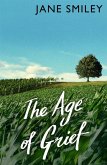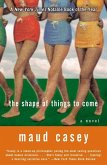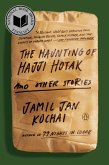A collection that follows the lives of two families who own land and hunt in rural South Carolina
The Lost Woods is a collection of fifteen short stories, most of them set in and around the fictional small town of Sledge, South Carolina. The events narrated in the stories begin in the 1930s and continue to the present day. The stories aren't accounts of hunting methods or legends of trophy kills-they are serious stories about hunting that are similar in style to William Faulkner's Go Down, Moses. The collection traces the evolution of two families-the Whites and the Chapmans-as well as the changes in hunting and land use of the past eighty years.
Some of these stories are narrated in third person; others are told by a wide range of characters, from grown men and women to children, but only from one perspective-that of the hunter. As they walk the woods in search of turkeys, deer, or raccoons, these characters seek something more than food. They seek a lost connection to some part of themselves. The title "the lost woods" is adapted from Cherokee myths and stories wherein people must return again and again to the woods to find animals that were lost. Thereby, we find not only food, but who we are.
Through these stories Rice reminds us that hunting is inextricably entwined with identity. As one of the oldest rituals that we as a species know, it reflects both our nobility and our depravity. Through it we return again and again to find the lost woods inside ourselves.
The Lost Woods is a collection of fifteen short stories, most of them set in and around the fictional small town of Sledge, South Carolina. The events narrated in the stories begin in the 1930s and continue to the present day. The stories aren't accounts of hunting methods or legends of trophy kills-they are serious stories about hunting that are similar in style to William Faulkner's Go Down, Moses. The collection traces the evolution of two families-the Whites and the Chapmans-as well as the changes in hunting and land use of the past eighty years.
Some of these stories are narrated in third person; others are told by a wide range of characters, from grown men and women to children, but only from one perspective-that of the hunter. As they walk the woods in search of turkeys, deer, or raccoons, these characters seek something more than food. They seek a lost connection to some part of themselves. The title "the lost woods" is adapted from Cherokee myths and stories wherein people must return again and again to the woods to find animals that were lost. Thereby, we find not only food, but who we are.
Through these stories Rice reminds us that hunting is inextricably entwined with identity. As one of the oldest rituals that we as a species know, it reflects both our nobility and our depravity. Through it we return again and again to find the lost woods inside ourselves.
Dieser Download kann aus rechtlichen Gründen nur mit Rechnungsadresse in A, D ausgeliefert werden.









